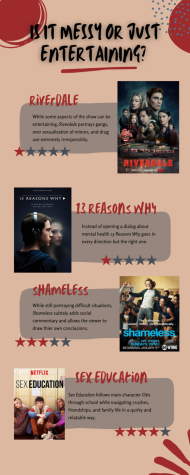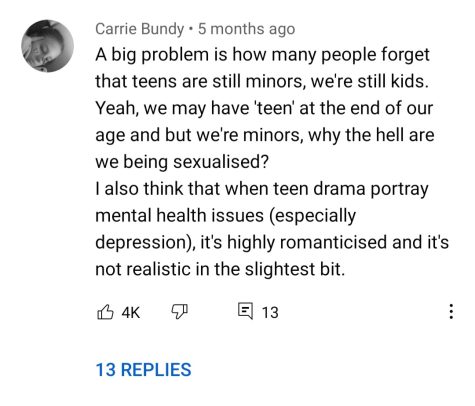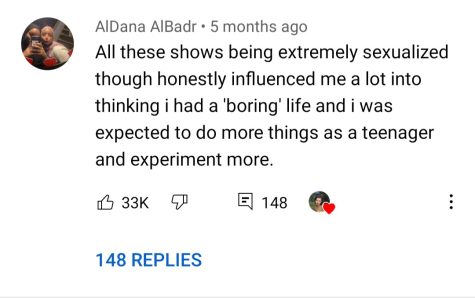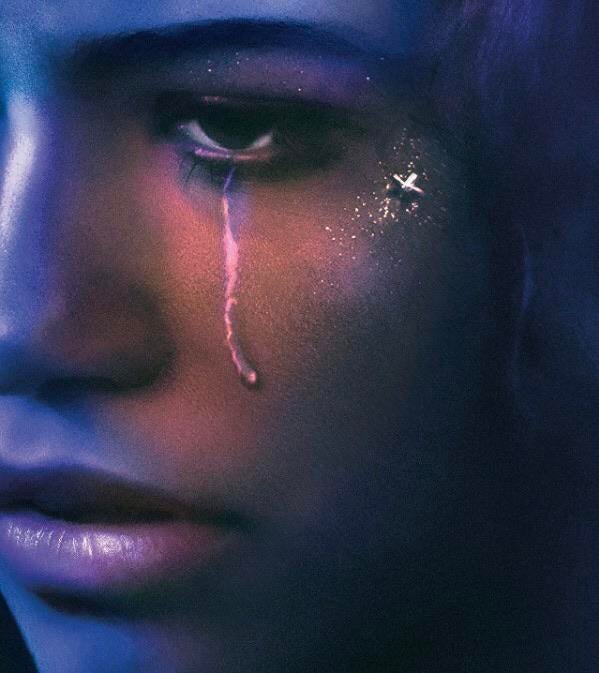Nothing like the movies
Teen drama shows, while incredibly popular, often promote unrealistic scenarios
February 1, 2022
If you have ever thought to yourself “Gosh, high school is nothing like High School Musical,” then you aren’t alone.
With the rising popularity of teen shows, it is easier than ever to expect high school to be something that it is not. Over the years the idea of high school in the media has morphed from the happy-go-lucky Hannah Montana to the complete dumpster-fire that is Riverdale.
When our generation was younger we grew up with shows on the Disney Channel promising that high school would be a time of excitement, fun drama, and randomly breaking out into song and dance. While that portrayal of high school was and continues to be mostly inaccurate, the new version of high school depicted in teen shows is potentially the worst yet.
Out of all of the American teen dramas that have come out in the last couple of years, Euphoria has definitely been one of the most popular among the bunch. The show’s first season debuted to an average of 3.3 million viewers for HBO Max, and the second season premiered to an average of 8.3 million people. Euphoria touches on a lot of topics that other shows are hesitant to cover, like the harsh realities of addiction, abuse and mental health. The main cast is diverse compared to other teen shows in the past, with all of the characters having drastically different lives and backgrounds, as well as POC and LGBTQ+ characters. One thing that is highly debated among Euphoria viewers is if the serious issues in the show are even taken seriously at all.
It’s no secret that teen shows have always been using serious issues as storylines in their episodes, but as time has gone on writers seem to use these topics more as shock value instead of a way to spread important messages. In shows like Boy Meets World (1993) and Degrassi (2001), there are various episodes that take on subjects like discrimination and handle it really well without straying away from the lesson that the episode was trying to teach. Even though some problematic subjects are handled better than others in their respective shows, lately there has been a concerning trend with these teen dramas.
Common popular tropes that are prevalent in teen shows today are the dreaded student/teacher relationships, extremely heavy drug use, unnecessary violence (looking at you Riverdale), and glamorized versions of mental illnesses. While these tropes are very real situations, they are usually glamorized, completely unnecessary to the plots of these dramas, and can also be very harmful to the teens who watch the shows all together. Writers choose to insert more heavy subjects like mental illness and substance abuse into the content but also don’t address them properly or completely. Teens can feel comforted by seeing an issue they struggle with portrayed in a TV show, but it becomes harmful when the problem is glossed over or isn’t appropriately addressed.
The sad fact is that these tropes aren’t just present in one show, but are something that is seen across the board. At least three shows off the top of our heads have had long going student/teacher relationships, with one even resulting in a marriage (Pretty Little Liars). The shows even go as far as to have a picture of Archie Andrews and music teacher Ms. Grundy as the show’s poster in Riverdale’s case. Besides romanticism of relationships between adults and minors, many teen shows are also guilty of promoting risky behaviors like unprotected sexual encounters and recreational drug use. Not only are shows promoting these behaviors, they are almost making these behaviors look like they can be performed with no strings attached when in reality they are serious decisions that come with heavy consequences.
 One thing Euphoria does well is showcasing what addiction actually looks like and it is not alone in this portrayal. Other shows like Sex Education (2018) and Shameless (2011) also present how drug use can affect a family and your relationship towards the people around you.
One thing Euphoria does well is showcasing what addiction actually looks like and it is not alone in this portrayal. Other shows like Sex Education (2018) and Shameless (2011) also present how drug use can affect a family and your relationship towards the people around you.
Although some people may say that these shows aren’t actually affecting teens’ perception of high school, we ask you to picture how you imagined high school before you even stepped foot in the door.
According to a YouTube comment by AlDana AlBadr on the video “the problem with teen dramas” by Mina Lee, teen dramas can almost cause FOMO.
“All these shows being extremely sexualized though honestly influenced me a lot into thinking I had a ‘boring’ life and I was expected to do more things as a teenager and experiment more,” AlBadir said.
In the end, as long as teens who watch these shows don’t expect all of the tropes to translate directly into real life, the content in the show can be very entertaining. The dangerous aspects of these dramas could potentially rise when students take the interpretations of high school too literally.


